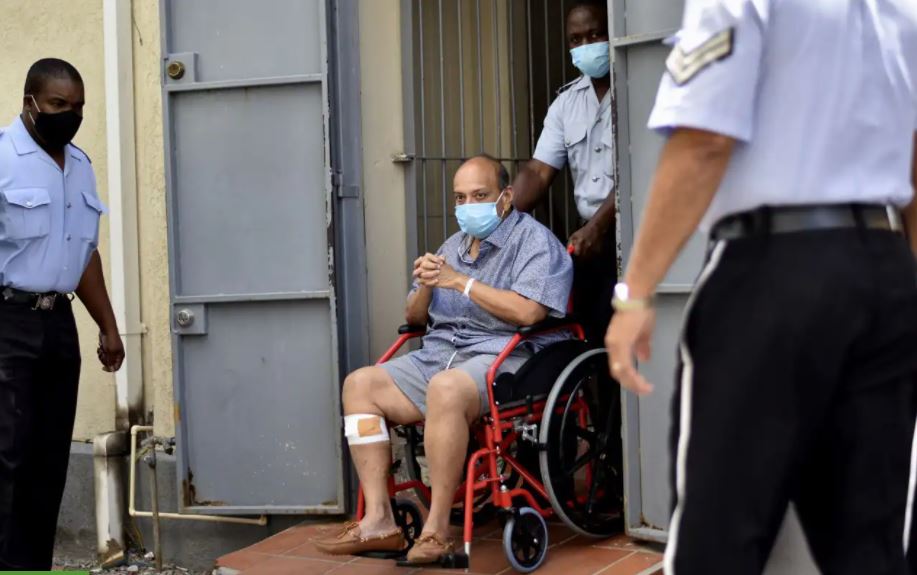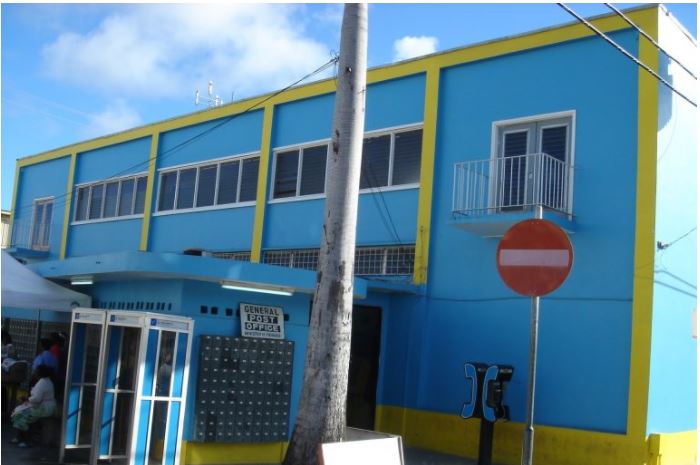MONEY CONTROL: Sections of this article have been redacted — For the modern pirate kings, the East Caribbean’s draw isn’t beautiful beaches and perfect weather: it is citizenship almost free from the risk of extradition, for as little as $100,000 and laws that make sure what happens in the Eastern Caribbean stays in the Eastern Caribbean. This is, perhaps, among the few parts of the world where corruption—as the 2016 wiretaps showed—is a legally-protected fact of life.
Early this century, Eastern Caribbean states began offering what has grown into the estimated $2 billion “citizenship-by-investment”, or CBI, industry. Pioneered by then Prime Minister Denzil Douglas’ government in the offshore haven of St Kitts, and marketed across the world by London-based immigration law firm Henley, CBI schemes offered high net worth individuals a passport, which allowed them visa-free travel to over 100 countries, including the United Kingdom and Europe.
Although an estimated 30 countries have similar schemes, Eastern Caribbean citizenship is cheap—and made even more attractive by the region’s expansive secrecy protections, as well as the fact that few questions were asked of applicants, an authoritative investigation by expert Ann Marlowe has shown. In one case, some 5,000 St Kitts passports had to be recalled because they did not even mention the holder’s place of birth.
The attractions are self-evident. Felons Paul Bilzerian and Roger Ver gave up their United States citizenship for St Kitts; Ross Ulbricht, the founder of the illicit marketplace Silk Road, was seeking to obtain Dominica citizenship when he was arrested. In 2014, Jatin Mehta—like Choksi, wanted by India for bank fraud—secured a St Kitts passport. The Central Bureau of Investigation has been seeking, unsuccessfully, to establish if he is on the islands—a condition-precedent to bringing extradition proceedings.
Little is known about how many Indians might have acquired Eastern Caribbean citizenships. But at least one British-Indian businessman, Dev Bath, is known to be a significant investor in CS Global, among the largest citizenship sales partners of Dominica and St Kitts. Bath, who also has property investments in Punjab, enjoys the use of a St Kitts and Nevis diplomatic passport. He has also retained an active interest in India, among other things participating in the 2019 diplomatic discussions between leaders of Caribbean states and Prime Minister Narendra Modi.
In 2015, allegations—never proven, nor legally investigated—surfaced that CS Global had made donations to the election campaign of Dominica’s prime minister, Roosevelt Skerrit, along with several Malaysia-based Iranians.
Bath has, in turn, had a long-standing business relationship with Peter Virdee, who is alleged by the United Kingdom’s National Crime Agency to have been “ready and willing to pay bribes, and had given at least one gift to a Caribbean politician”, based on the wiretaps of his conversations by German authorities. Although there has been no allegation that either Bath or CS Global were involved in these bribery allegations.
For students of Caribbean politics, the murky operations will be no surprise.
In essence, Antigua and Barbuda—short of everything, including drinking water—made a living by extracting rents from its one real asset, its national sovereignty.
In 1990, for example, an anti-narcotics operation in Colombia led to the killing of Medellin cocaine cartel kingpin Gonzalo Rodriguez Gacha. The Israeli-manufactured assault rifles, machine guns and shoulder-fired rockets found in Gacha’s citadel turned out to have been sold to Antigua by Israel, for the use of its defence services.
The weapons were, it turned out, purchased by Maurice Sarfati, a former Israeli army officer, who once operated a melon farm in Antigua but went bankrupt, and reportedly is being sought by US authorities for defaulting on $1.3 million in loans. Together with another Israeli army officer, Colonel Yair Klein, Sarfati had set up a training school for Panamanian insurgents opposed to General Manuel Noriega—later deposed in a United States military operation—but ended up selling the weapons to the drug cartel.
Antigua’s behaviour, by the standards of the Caribbean, was not unique. Lacking other resources, the states used the international system—in which the sovereignty of all is equal—as a resource. At their core, both citizenship-by-investment, and the region’s secrecy laws, serve a single purpose: allowing the wealthy to evade the reach of nation states, in return for a fee.
Even though criminals like Choksi might be of little individual consequence, the regimes of the Eastern Caribbean fear the message extraditing fugitives will send to other potential clients. “You’ve got to realise that the asset protection industry is trillions of dollars, not billions of dollars, it’s trillions of dollars,” lawyer Jeffrey Fisher has explained. “Essentially, it’s: ‘we’re going to find a way to screw legitimate creditors out of collecting a legitimate debt’. That’s the business these people are in.”
Like so much else to do with the Eastern Caribbean’s crime-protection cartel, the whole truth about what happened to Choksi may never be known. Perhaps, as his lawyers claim, New Delhi leaned on Antigua and Dominica to play along with a fast-and-dirty exit from the country, short-circuiting a near-hopeless extradition effort that has dragged on since 2018.
If that is in fact the case, there’s little doubt the operation was bungled. Choksi should have been on a business jet out of Dominica’s airport inside minutes of the Calliope of Arne docking, not waiting in a jail for his lawyers to move a Habeas Corpus case.
In the summer of 1718, a desperate King George I made the privateer Woodes Rogers governor of the Bahamas, in an effort to stamp out the Flying Gang of the feared pirate Captain Charles Vane. Vane responded thus: “We are willing to accept His Majesty’s most gracious pardon on the following terms, viz.-That you will suffer us to dispose of all our goods now in our possession. Likewise, to act as we think fit”. The governor sent two sloops to capture Vane; the pirate king burned a ship, and used the confusion to flee on to the high seas, defiantly flying his black flag.
For years, Woodes Rogers struggled to turn the pirate enclave into a properly-administered British colony. The Empire finally won: the cost of piracy to trans-Atlantic trade had become too high to countenance. Local economic interests, though, made the struggle long and often bloody.
The Choksi case may mark a similar, historic turning point. As governments across struggle to raise revenue run up through the pandemic, they’re likely to become increasingly intolerant of high-wealth individuals—legitimate or criminal—seeking to avoid their tax bills. For the past several years, several countries—including the United Kingdom and the United States—have been leaning on the Eastern Caribbean to clean up its act.
New Delhi has long suffered humiliation at the hands of criminals with the cash to put themselves beyond the reach of its laws. It now needs to lead an international effort to compel the Eastern Caribbean to shut down the safe havens that harbour so many of the world’s most important pirate barons.



















